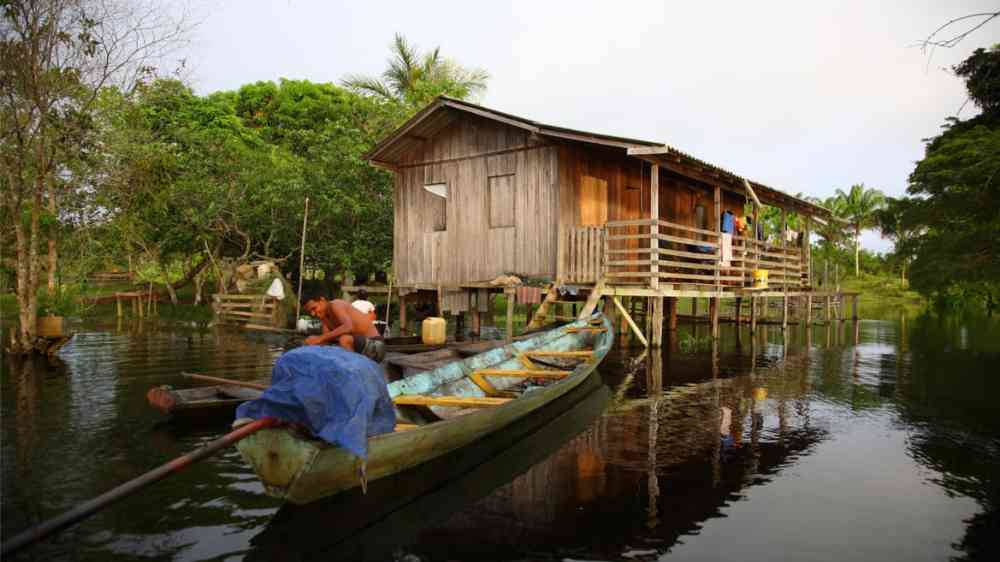Navigating climate vulnerability: Lessons from adaptive social protection practices in Latin America

For almost three weeks straight in May 2024, heavy rains relentlessly pounded the southern Brazilian state of Rio Grande do Sul, causing devastating floods that claimed 169 lives and forced some 600,000 people to leave their homes.
The urgency for assistance and aid cannot be overstated, as this catastrophe presents a significant threat to the poor and vulnerable, pushing them into an even more precarious situation.
How is Brazil ensuring that the most vulnerable and poor don't fall deeper into poverty during this crisis? How is the social protection system supporting the crisis response?
Brazil's social protection system accelerated its response efforts through the conditional cash transfer program Bolsa Família. The application of existing protocols to advance cash transfers, both through digital and cash payments, has facilitated the emergency response. Waiting times for entering the program have also been eliminated in Rio Grande do Sul, ensuring prompt assistance for 21.7 thousand new families in the program. Furthemore, the government initiated a US$ 1,000 reconstruction aid per family targeting those displaced by the rains. This swift action highlights the importance of Adaptive Social Protection (ASP) in responding to and mitigating the impacts of such disasters.
The challenges posed by climate change are not unique to Brazil alone. Across Latin America and the Caribbean (LAC), climate shocks and disasters have doubled in the last 30 years in the region. As climate change tightens its grip on LAC region, the harsh reality of extreme weather events threatens poor and vulnerable households. These events not only interrupt daily life but also deepen poverty and existing socio-economic disparities, undoing years of hard-won development gains.
The journey towards shock-responsive social protection in LAC has seen extensive innovation in the recent past, especially in the wake of the COVID-19 pandemic and the subsequent food and fuel crisis. The pandemic highlighted the pivotal role of ASP, which has emerged as a novel and comprehensive approach that helps build the resilience of poor and vulnerable households by investing in their capacity to prepare for, cope with, and adapt to shocks.
The newly published report, "Unleashing Adaptive Potential for Social Protection - Good Adaptive Social Protection Practices in The Latin America and Caribbean Region," draws upon findings from the World Bank's Social Protection Stress Test Assessments, designed to assess the readiness of social protection systems to respond to covariate shocks. Between 2021 and 2023, 18 stress test assessments were conducted across the Latin America and Caribbean region. The primary aim of the report is to offer comprehensive evidence-based good practices to guide future dialogue and policymaking in the realm of ASP, in LAC and beyond.
Let's delve deeper into some of the good practices from the region, each aligned with a building block of ASP.
First, existing programs and delivery systems are crucial for routing assistance to the poor and vulnerable during shocks. In the wake of the pandemic, Brazil's Bolsa Familia conditional cash transfer program expanded horizontally to an additional 1.2 million families. The program has also been leveraged in response to disasters such as a dam collapse in Brumadinho in 2019, allowing beneficiaries to make anticipated withdrawals of the transfer. Modernizing payment systems and shifting to digital payments have also been key to increasing resilience to shocks. In Peru, this effort was also coupled with financial inclusion, where existing and new beneficiaries were required to open a new transaction account to receive cash assistance.
Second, data and information systems, including Early Warning Systems (EWS) and social registries, are vital for informed and timely assistance. The Dominican Republic, for example, has a comprehensive system that covers a wide spectrum of shocks. It also integrates vulnerability indices to inform targeted assistance and resilience-building efforts. Chile's integrated social information systems and registries enable effective targeting and response, facilitating post-disaster assessments and ensuring efficient resource allocation.
Many countries in LAC have recently digitalized or adopted converging technologies as part of their delivery chain. Some countries now conduct beneficiary outreach through social media channels, provide digital payments, or integrate Machine Learning to reduce errors, improve the quality of data, and verify the accuracy of information.
Third, predictable financing should be made available and earmarked for shock responses channeled through social protection systems. The Caribbean Catastrophe Risk Insurance Facility (CCRIF) provides almost complete coverage to countries in the Caribbean and Central America. The insurance provides a lifeline for member governments, offering swift payouts to address immediate needs in the aftermath of disasters. The governments of Belize and Dominica entered into an agreement with the WFP to receive a top-up for the CCRIF premium. In return, a proportion of the insurance payout will be earmarked for cash assistance.
Lastly, but not least, institutional arrangements and partnerships between Social Protection and Disaster Risk Management sectors allow for the deployment of timely assistance in the event of a shock. The Dominican Republic's integrated ASP strategy exemplifies robust institutional arrangements, fostering coordination between social protection and disaster risk management systems for effective crisis response. Other countries, such as Argentina, Brazil, Chile and Uruguay, have made important strides in building strong institutional arrangements.
Despite the progress and innovations, challenges persist in ASP implementation in LAC, ranging from fragmentation to bureaucratic delays. The report underscores the need for enhanced coordination, investment in data, information systems and digital infrastructure, as well as strengthened monitoring mechanisms to address these gaps. Moreover, in advancing the ASP agenda, it is important to adopt a whole systems approach to address structural and emerging issues in the region. These challenges encompass the region's ageing population, intraregional migration dynamics, and the significant share of the population employed in the informal labor sector. Drawing from the lessons learned from the pandemic, high inflation, and other large-scale covariate shocks, this report emphasizes the importance of further investment in the ASP agency.